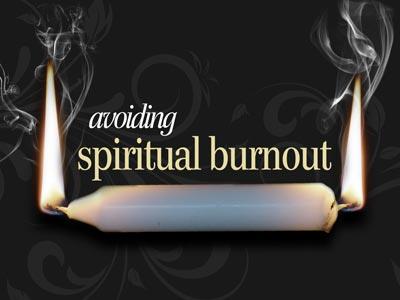-
The Grief Gauge Series
Contributed by Timothy Smith on Nov 28, 2017 (message contributor)
Summary: 5th in 5 part series on overcoming the obstacles and difficulties of life using five different Psalms. We used a "journey" or "road" metaphor in terms of the bumps of success, fear, guilt, the religious rut and grief, etc.
THE GRIEF GAUGE
Navigating the Bumps of Life - Week 6
PSALM 116:1-8
INTRODUCTION:
Paul Harvey tells the true story of a lady who went to a newspaper to report the death of her husband. She took a glowing four page report to the obituary counter. Upon seeing it, the news clerk said, "Ma’am, you should know that it costs $.50 a word to put that in the paper." Stunned, the wife took it back and re-wrote it. It now said, "Sam Brown dies." The clerk said, "I’m sorry ma’am, but there’s a 7-word minimum.” The widow took it back & counting on her fingers wrote:"Sam Brown dies... ’88 Ford for sale."
Now, I wanted to use that light hearted story to begin our discussion this morning on grief for two reasons: (1) We need to understand that realistically grief will not go away that quickly. (2) This is a very heavy topic. For some this morning this topic will re-open some wounds and be difficult to handle. But we need a balance. Somewhere in between the humorous, quick fix of Paul Harvey’s widow and the person who for years cannot bring themselves to go on with their life, there is an equilibrium of emotion that God wants for us. Ecc. 3:4 says: "There is a time to cry and a time to laugh, a time to grieve and a time to dance." The author of Psa. 116 went through the process of grief and was able to find comfort. My sincere prayer is that this message will enable us to use this Psalm as sort of a “grief gauge.” For those going through a time of loss to be able to measure whether they are experiencing “a time to grieve,” a normal and right emotion, or if their grieving is out of balance. I also hope that our time together will enable us to learn a little about how to bring some comfort to our friends and loved ones who suffer with grief.
I. REASONS FOR GRIEF:
Let’s begin by discussing the reasons for grief. Grief is defined as: "An involuntary emotion you experience when you lose something or someone that is valuable to you." Now, since it is involuntary we need to understand that grieving is not a sin. It is not wrong to express grief, in fact it’s natural. Paul, a man who experienced loss, wrote in 1 Thess. 4:13- "We do not want you to grieve like other people who have no hope." (GW) He doesn’t say, "don’t grieve," but, in your grief, remember to place your hope in God. In my funeral messages for someone who has died as a Christian, I often tell the bereaved, "Grief is an honorable emotion because it is borne out of love. You must grieve, but understand who you grieve for. Not for your loved one because they are so much better off with the Lord. But for yourself, because of the loss you are experiencing.” So it is important that we understand at the very start of our discussion that grief is an involuntary emotion that all experience when they lose something or someone that was valuable to them.
Most commentators describe Psalm 116 as a “Psalm of Grief,” the writer either is or has been grieving. We are not sure of the exact circumstances but just look at some of the words he uses. Vs:3: "The danger of death was all around me; the horrors of the grave closed in on me; I was filled with grief and fear." Vs:10 he says, "I am completely crushed." So, the Psalmist has been grieving, and although we don’t know specifically the cause of his mourning, we do know that grief can come in a variety of ways.
The most common grief is from the loss of a loved one. I believe this is the source of the Psalmist’s sorrow. In vs:15 he says, "How painful it is when one of the Lord’s people die." The loss of a loved one, especially if they are young or the death is sudden may be the hardest kind of grief, but it’s not the only source. The loss of possessions can cause grief. Just ask those who try to take their own lives when the stock market crashes or go into a hermit like existence when their life savings is lost. The loss of health can cause grief. Soldiers that lose a limb or athletes who lose their careers due to injury certainly grieve over that loss. Some commentators feel that when the Psalmist says in vs:3 that "the danger of death was all around me," that maybe he was referring to his health. A loss of health can cause grief, but it is also not uncommon for a person enduring intense grief to have health problems; like insomnia, exhaustion, head aches, anxiety, depression and more. Grief can come from a loss of position too. Many who do not get the promotion they were counting on, or the job they had interviewed for and needed so badly, go into a time of mourning and depression. And grief can come from the loss of a relationship too. Counselors often say that a divorce is tougher to live with than death. They live with the ever present loss of the partnership, the loss of companionship, the unfulfilled expectations.

 Sermon Central
Sermon Central



